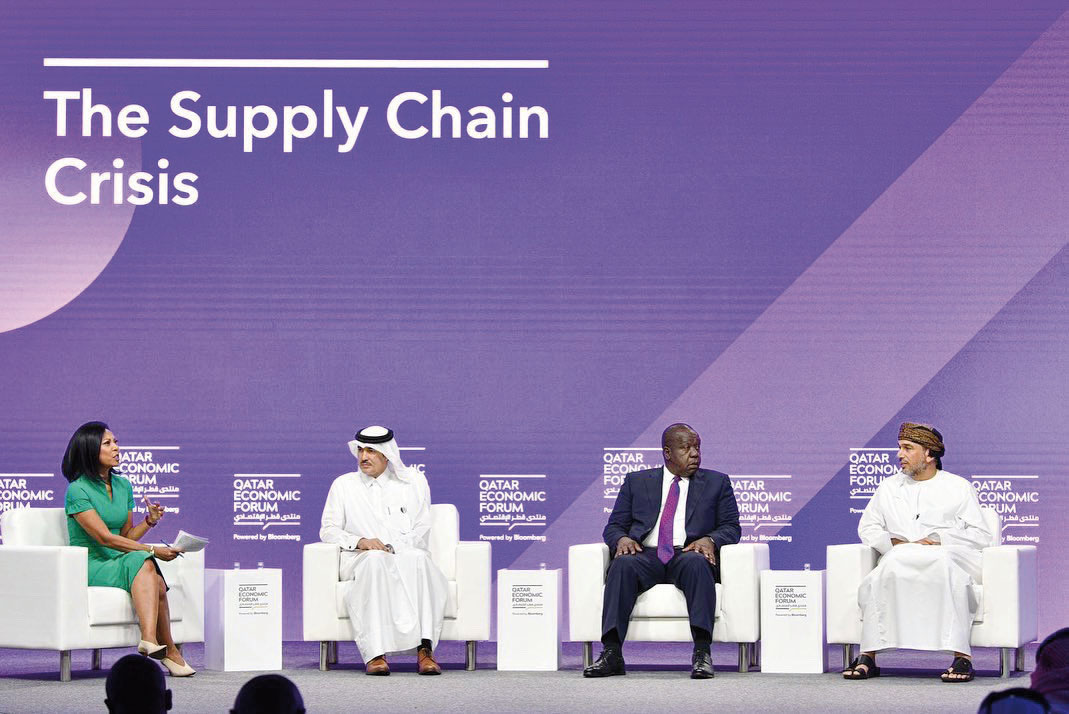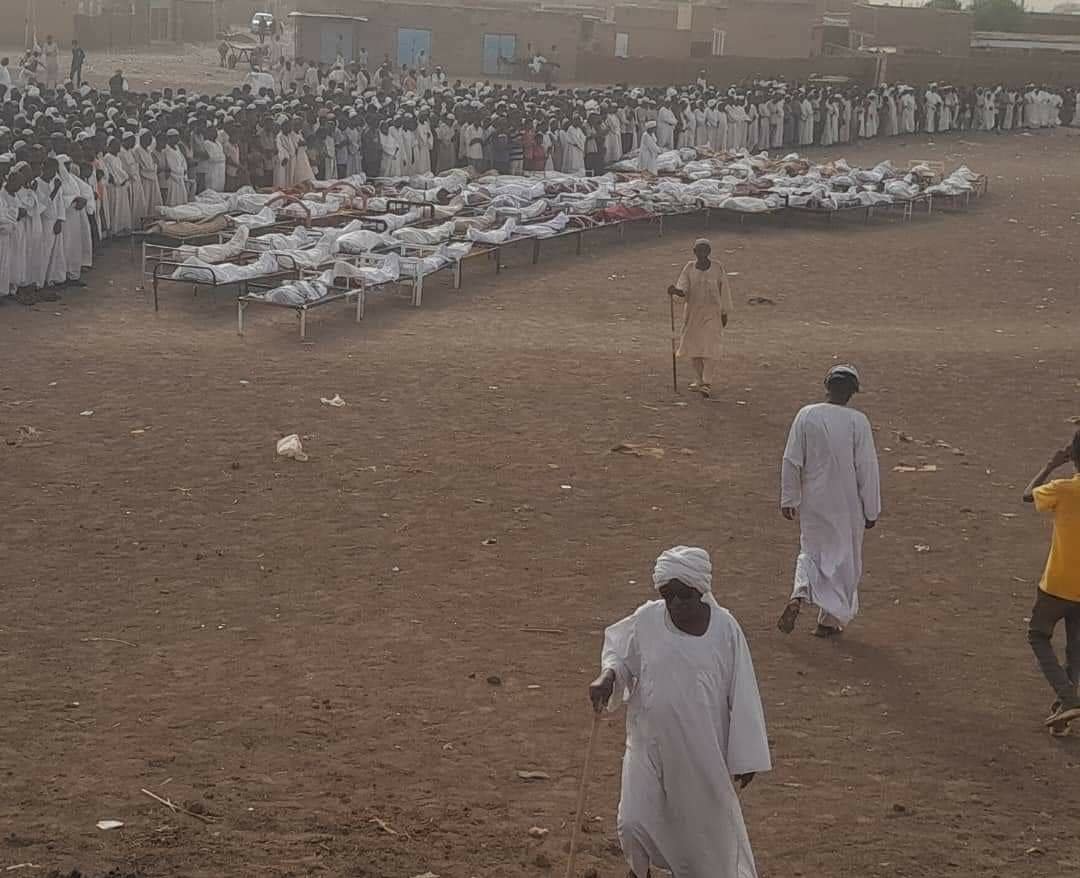Stakeholders have called for more sophisticated infrastructure, improved government-private business relations and decentralization of manufacturing capacities to tackle the global supply chain crisis and prepare countries for potential disruption to international trade. The panel also highlighted onshoring and multiple sourcing to fix the supply chain.
Speaking during a session at the Qatar Economic Forum, Powered by Bloomberg titled ‘The Supply Chain Crisis,’ H E Ahmad Al Sayed, Minister of State and Chairman, Qatar Free Zones Authority (QFZA), Dr. Fred Matiang’i, Cabinet Secretary, Ministry of Interior & Coordination of National Government, Republic of Kenya and Abdulrahman Salim Al Hatmi, Group CEO, Asyad Group said Covid-19, the war in Ukraine, a reluctance to shift from traditional trade patterns and the current inflation have all affected the world’s supply chain.
The supply chain is interconnected and complex to be entirely immune to shocks, especially by a pandemic and a war; hence, governments and businesses must adopt new strategies to keep goods and services moving.
“The Covid-19 contributed a lot and the shutdown of major production cities like Shanghai, which contributed more than 10% to the global international trade for China. Inflation and the Ukraine situation added to the problem. Of course, you have the impact of food price inflation and the sudden pressure that came after COVID because everyone was back to normal business. And that puts huge pressure on the logistic value chain,” Al Sayed said during the session.
On the other hand, Dr. Matiang’i said, “The reason why we have suffered a lot of disruption as a result of Covid-19 and now, of course, the challenges in Ukraine, is because the world was not used to departing from traditional methods of production. None of us was prepared for what happened. For example, our governments were not ready to shed some bureaucratic challenges to enable businesses to recover faster. Secondly, many governments, especially in sub-Saharan Africa, maintained an old red tape system of supporting business.
“In some parts of the global South, solid relationships between government and business do not exist, and the gaps due to long red tape and bureaucracy increased the challenges or worsened the disruption.”
The Kenyan official stressed that it is time for policymakers to draw lessons from this experience and see how best governments can be of value to businesses and how business and government can work together in the interest and service of the people.
Meanwhile, Al Hatmi said the world needs to look at multiple sourcing concepts to fix the supply chain issues.
“One way to fix the supply chain is the global infrastructure. Also, policies need to be looked at differently. Some of the chaos we are in is because of the policies. We need to have this continuity in business mechanisms. Onshoring is a far-fetched reality, and I think multiple sourcing is the way forward. There are probably a lot of efforts now across countries to collaborate more, and that’s because you can never get all the capacity you need in a country.”

















Leave a Reply